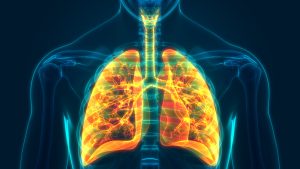Sheikh Shakhbout Medical City (SSMC) in Abu Dhabi, one of the UAE’s key hospitals, has ceased the use of Desflurane, a widely employed anaesthetic but also a major contributor to greenhouse gas emissions.
This bold move aligns with the Department of Health – Abu Dhabi’s healthcare sustainability goals. Additionally, it represents a significant stride in the healthcare sector’s contribution towards environmental conservation. Desflurane, commonly used during surgeries to induce anaesthesia, has been identified as an environmental culprit. It contributes substantially to greenhouse gases, trapping heat and aggravating global warming.
Anaesthetic Gases and Carbon Footprint
In general anaesthesia, medical professionals primarily use anaesthetic gases. They contribute to around 5% of an acute hospital’s carbon footprint. This is according to Dr Monzer Hassan Sadek, Chair of the Department of Anesthesia at SSMC. The most damaging gases include Nitrous Oxide and Desflurane.
These gases’ Global Warming Potential (GWP) indicates their environmental harm. GWP measures the amount of heat trapped within the atmosphere over a 100-year period compared to a similar mass of carbon dioxide (CO2), which has a GWP of one. Astonishingly, Desflurane is 2540 times more potent as a greenhouse gas than an equivalent mass of CO2. To put it in perspective, a fully vaporized 240 mL bottle of Desflurane equates to the CO2 emissions from driving a petrol engine car for 4943 kilometres.
A New Approach to Anesthesia
In view of these environmental concerns, the SSMC has taken the decision to discontinue using Desflurane. This not only reduces its carbon footprint but also enhances patient safety, as alternative anaesthetics may carry a lower risk of respiratory complications.
“Anesthesia can be administered through various techniques. Each has its respective pros and cons. We can use either anaesthetic gases or intravenous drugs for general anaesthesia. Additionally, regional anaesthetic techniques such as epidural or spinal injections, or limb blocks, can be used where patients remain awake but comfortable during their operation,” Dr. Sadek elaborated.
Sustainable Healthcare for a Sustainable Future
Dr Matthew Gettman, Chief Medical Officer of SSMC, affirmed the hospital’s commitment to sustainable procurement and reducing its carbon footprint. He emphasized that SSMC is conscious of its environmental impact and continually strives to practice sustainable procurement.
“Mitigating greenhouse gas emissions from inhaled anaesthetics, like Desflurane, is just one example of how we are proactively reducing our carbon footprint. We are proud to pioneer this change and hope to inspire further positive actions for healthcare sustainability in the UAE and beyond,” said Dr Gettman.
The discontinuation of Desflurane at SSMC is indeed a significant achievement. It not only emphasizes the hospital’s commitment to healthcare sustainability but also sets an example for other healthcare institutions in the region. As we continue to face the global challenge of climate change, every effort towards a sustainable future counts. And it is encouraging to see major hospitals taking the lead in such important environmental initiatives.













